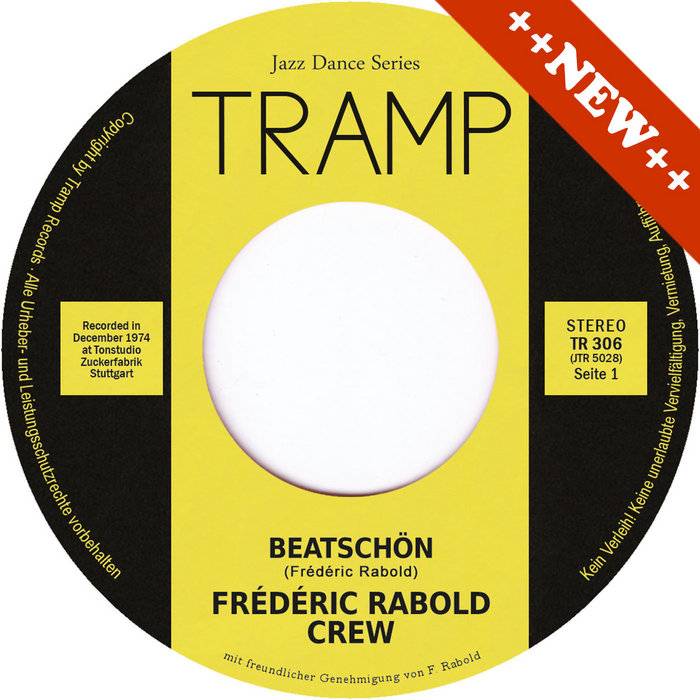
Beatschön – Tramp Records 45s
this blog is GROOVY – check out great Soul, Funk, Jazz, Hip Hop, Bass, Breaks , Reggae, House n many more TUNES
When you think of Germany, you might picture beer gardens, soccer games, and maybe some sauerkraut. But hold onto your lederhosen! This country has birthed a vibrant musical scene that spans centuries and styles. From classical symphonies to techno raves, let’s groove through the history of German music with a sprinkle of fun!
Germany kicked off its major musical journey in the Baroque period with heavyweights like Johann Sebastian Bach (1685-1750). With over 1,000 compositions under his belt—including concertos and cantatas—Bach wasn’t just good; he was prolific! Rumor has it he composed one whole piece while waiting in line at a bakery. Talk about multitasking!
Fast forward to the Classical era where we meet Ludwig van Beethoven (1770-1827), known for his groundbreaking symphonies that shook the halls of Vienna. Did you know Beethoven was so passionate about his craft that he continued composing even after losing most of his hearing? Legend says he’d nod along with orchestras using sheer determination… and some serious earplug style.
Then there’s Johannes Brahms (1833-1897), who loved to play practical jokes on friends by pretending to be serious when jamming out in private settings. He once noted how much better everything sounded when nobody could hear him mess up!
As we slid into the early 1900s, German music started embracing modern influences—from jazz clubs popping up in Berlin to avant-garde experiments by composers like Arnold Schoenberg, who made twelve-tone scale cool long before it hit mainstream radio.
And here’s a giggle: jazz musicians were often puzzled by Schoenberg’s complex arrangements. One perplexed musician supposedly quipped: “If I wanted math problems instead of music, I’d have stayed back in school!”
The Weimar Republic era brought cabaret culture bursting onto the scene—think fuzzy mustaches and smoky lounges filled with sharp wit! This was where artists like Kurt Weill strutted their stuff—with satirical tunes that critiqued politics without missing a beat.
As post-war musicians brushed dust off their instruments, Germany became fertile ground for rock ‘n’ roll vibes. Enter Kraftwerk, pioneers of electronic music who taught us all how cool machines can sound when they’re belting out beats! Their song “Autobahn” is literally about driving on highways—and yet it’s an absolute bop anyone can groove to.
Funny fact? When Kraftwerk performed live concerts early on, robots were supposed stand-ins for band members during breaks… but they quickly got replaced because those robots couldn’t carry equipment backstage or handle groupies very well!
Not far behind were bands like Can and Faust, who fused elements from various genres resulting in experimental sounds far ahead of their time—they threw away rulebooks faster than confetti at New Year’s Eve parties.
Enter techno—the genre that’ll make your feet move even if your brain’s telling you it’s too late for dancing! Starting from underground scenes around Berlin’s clubs such as Tresor and Berghain (oh la la!), artists like Derrick May embraced this pulsating movement alongside locals like Paul van Dyk taking things global.
A quirky nugget? In true party spirit fashion—a certain DJ named Westbam once accidentally played an entire set backward during what should’ve been peak hours at Love Parade; folks still danced manically thinking it was revolutionary art! “Backward beats are all the rage now,” said no one ever…until then!
The Neue Deutsche Welle movement emerged—a new wave brimming with catchy tunes sung entirely in German led by icons such as Nena (“99 Luftballons”) whose lyrics spoke about social issues wrapped nicely around infectious pop hooks—talking potential protest through joyously catchy choruses?
Did you know Nena had her balloons ready for every show? It became part superstition/part tradition—that fans would bring huge floating bunches which often ended significantly taller than everyone else attending…who needs VIP seating when you’re practically floating?!
Today’s German musicians continue reflecting diverse experiences stemming from migration stories shaping communities across borders thanks largely due immigration influx since late ’90s—serving up unique blends speaking volumes while keeping it groovy fresh showcased through acts like Rammstein mixing metal riffs with theatrical flair or Cro dropping brilliant sunshine vibes underpinned hip-hop tendencies echoing throughout Europe making waves internationally .
Let’s not forget rap sensations K.I.Z., known for hilarious performances tackling heavy topics—it wouldn’t be uncommon seeing them sporting ridiculous outfits spewing knowledge wrapped humorously delivered fast lines leaving audiences laughing hard between verses packed tight content wise too—you can’t help but appreciate smart genius behind these rhymes!
So next time someone tells ya Germans lack rhythm ask ‘em lightly: “Have ya heard about our epic tracks?” Because whether tapping toes low-key whilst sipping brews or thrashing wildly within venues humming high-energy levels skyward—you will always find something unique captivating resonating harmony beneath neon hues—even amidst furiously spinning records crafted carefully passing down generations before stepping timelessly today towards future reflections left revealing togetherness shown consistently drawn strength combining talents uniting cultures globally shaping lives collectively enriching hearts indelibly marking inspiration forevermore transmitted vibrantly transcending barriers effortlessly dancing transcendence linking human experience always seeking groove wherever found…
Now go put on your favorite Deutsch tune and dance your heart out – Prost!

Beatschön – Tramp Records 45s